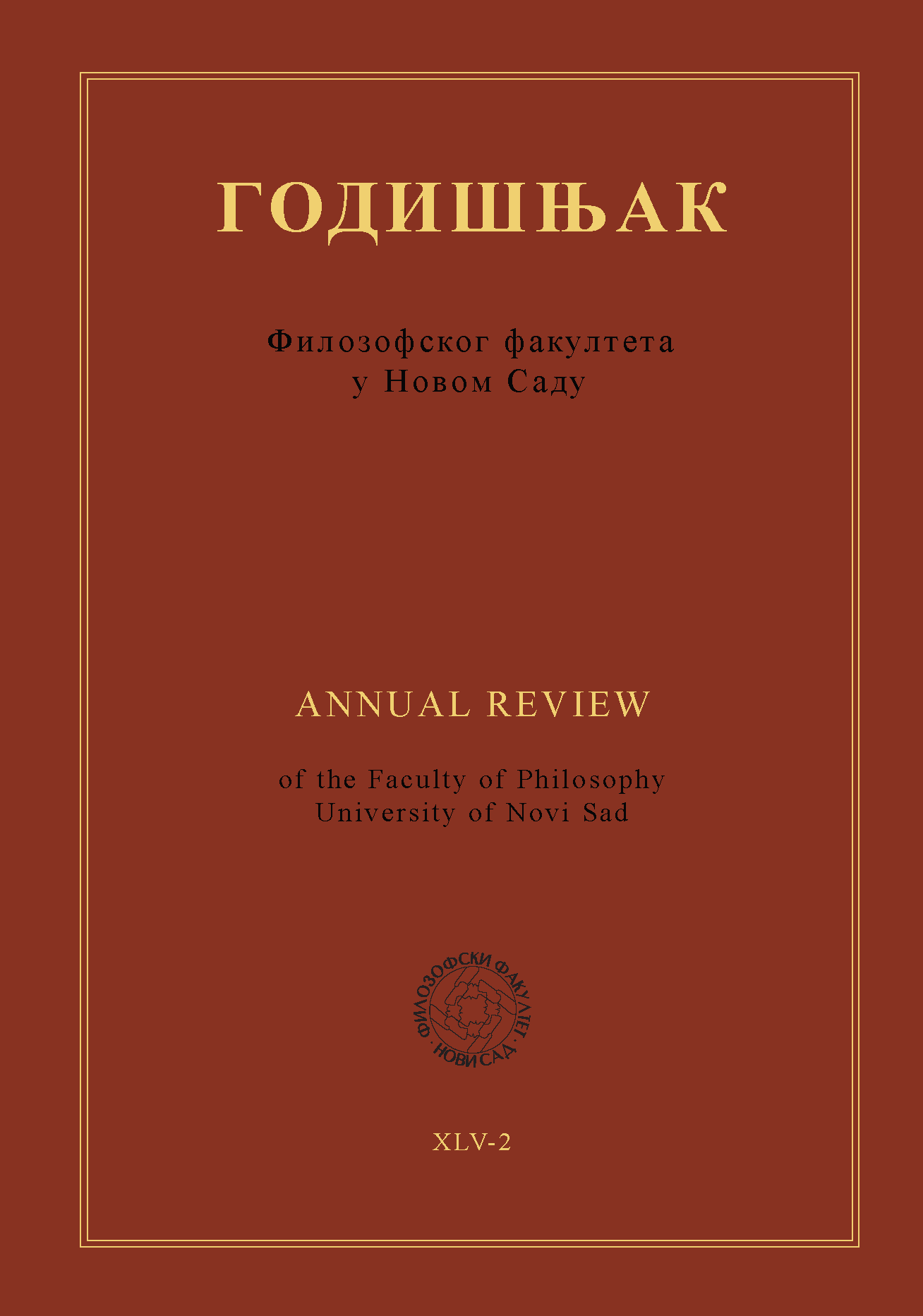CHALLENGES OF CASE MANAGERS IN CENTERS FOR SOCIAL WORK: IMPLICATIONS FOR THE EDUCATION SYSTEM
Main Article Content
Abstract
Starting from the fact that teachers in schools are often unfamiliar with the work of centers for social work, the paper analyzes issues through which the phenomenon of case management in the centers for social work is implemented. In Serbia, case management as a method of work in the centers for social work was legally introduced in 2008 in order to provide: a holistic approach for assessing the needs, strengths, and risks faced by the child and his/her family, individual approach for planning services and interventions, introduction of the principle of planning permanence in social protection, as well as participation of children and parents as beneficiaries.
The paper describes in more details phases of the case management cycle: assessment of beneficiary’s needs, planning and formation of the service to be provided, followed by the phase of service implementation, then monitoring, and finally evaluation of the outcome of the service provided. There have been analyzed tasks and a role of the case manager for the purpose of better cooperation among social services and educational institutions. Depending on the competencies of the case manager, the beneficiary's needs, and other factors, a professional who is in position of the case manager can have a role of a representative, a mediator, an associate, a coordinator, a community organizer, a consultant, an evaluator, an advisor, a supervisor, an executor, a problem solver, a system planner, and a system modifier. The case manager performs integrated tasks through these roles.
A special part of the paper is dedicated to the role and place of the case manager in the assessment of the situation, his/her place in the team work with other professional associates and services, as well as challenges he/she faces when beneficiaries are included in the assessment. After a detailed analysis of the case management and challenges faced by the case manager, implications on the education system are primarily related to connecting and coordinating activities of all stakeholders who directly or indirectly affect the student in the school, in this case the beneficiary of the center for social work. The purpose of this paper is to know and integrate the theory and practice of case management with educational institutions, which services are connected, and which are in a direct relation and cooperation with the work of centers and social services.
A conclusion is that the education system must be familiar with the way of work, scopes, and possibilities of expert employees in the guardianship bodies, in order to have a successful cooperation. The help of experts, in this case the case manager, as well as the interaction of these two systems, can be complete only in the described way. There has been confirmed a need to establish and nurture a dialogue and cooperative relationships, which affect the quality of cooperation, as well as a clear delineation of roles and expectations by both professionals involved in the case and beneficiaries.
Downloads
Article Details
References
Ajduković, M., & Urbanc, K. (2009). Integrirajući pristup u socijalnom radu kao kontekst razumevanja individualnog plana skrbi. Ljetopis socijalnog rada, 16(3), 505- 535.
Beljanski, M. (2011). Pedagoški izazovi u praksi supervizije socijalnog rada. Pedagoška stvarnost, 3-4, 235-240.
Beljanski, M. (2016). Supervizija ili o ličnom i profesionalnom usavršavanju odraslih. Andragoške studije, 1/2016, 129- 142.
Certo, S. C., & Certo, S. T. (2008). Moderni menadžment. Zagreb: MATE d.o.o.
Čačinovič Vogrinčič, G., Kobal, L., Mešl, N., & Možina, M. (2007). Uspostavljanje suradnog odnosa i osobnog kontakta u socijalnom radu. Zagreb: Biblioteka socijalnog rada.
Dalzell, R., & Chamberlain C. (2006). Communicating with children: A two-way process. London: National Children’s Bureau.
Izveštaj o radu centara za socijalni rad u Srbiji (2017). Beograd: Republički zavod za socijalnu zaštitu.
Mihajlović Babić, S. (2017), Antipotčinjavajuća praksa u ostvarivanju prava na novčanu socijalnu pomoć – prepreke i mogućnosti. Godišnjak Fakulteta političkih nauka, 17, 151-170.
Mihajlović Babić, S., Despotović, M., & Đaković, M. (2019). Izazovi za profesiju socijalnog rada nakon ekonomske krize u Republici Srbiji. DHS – Društvene i humanističke studije Časopis Filozofskog fakulteta u Tuzli, 1(7), 349-366.
NASW Standards for Social Work Case Management. (2013). https://www.socialworkers.org/LinkClick.aspx?fileticket=acrzqmEfhlo%3D&portalid=0
Robbins, S. P., & Judge, T. A. (2009). Organizacijsko ponašanje. Zagreb: MATE d.o.o.
Strier, R., & Binyamin, S. (2009). Developing Anti-Oppressive Services for the poor: A Theoretical and Oganisational Rationale. British Journal of Social Work, 40(6), 1908-1926.
Tartakovsky, E. (2015). Personal value preferences and burnout of social workers. Journal of Social Work, 16(6), 657-673.
Urbanc, K., & Ajduković, M. (2010). Novi modeli rada centara za socijalnu skrb: izazovi i preporuke. Ljetopis socijalnog rada, 7(3), 353-389.
Žegarac, N. (2004). Deca koja čekaju. Izazovi i trendovi profesionalne prakse u zaštiti dece od zlostavljanja. Beograd: Save the Children UK, Centar za prava deteta.
Žegarac, N. (2007). Vodič za planiranje i procenu (materijal sa obuke).
Žegarac, N. (2015). Od problema do prilika u vođenju slučaja-priručnik za praktičare. Beograd: Fakultet političkih nauka i Centar za istraživanja u socijalnoj politici i socijalnom radu.
Žegarac, N. (2016a). Kompetencije za kvalifikacije u socijalnom radu: izgradnja standarda. U: Žegarac, N. (ured.). (2016). Standardi za obrazovanje socijalnih radnika u Srbiji. Beograd: Fakultet političkih nauka. 9-45.
Žegarac, N. (2016b). Mapiranje praksi i radne snage u oblasti zaštite dece u Srbiji. Beograd: Centar za integraciju mladih.
Walter, L. (2001). Socijalni rad u Evropi - prikaz jedne raznovrsne profesionalne grupe. U: S. Hessle, L. Walter, M. Payne, & D. Zaviršek (ured.). (2001). Uspostavljanje međunarodnh standarda u visokom obrazovanju za socijalni rad, Banja Luka: Filozofski fakultet Univerziteta u Banjoj Luci. 17-34.
Whitaker, T., Weismiller, T., & Clark, E. (2006). Assuring the sufficiency of a frontline workforce: A national study of licensed social workers—Executive summary. NASW.
Woodside, M., & McClam, T. (2003). Generallist Case Management: A Method of human Servise Delivery. Pacific Grove, CA: Thomson – Brooks/Colle.




